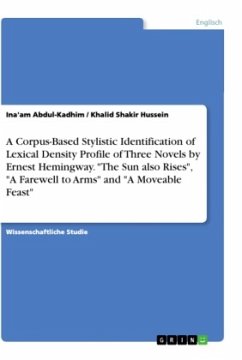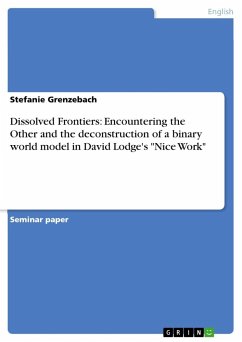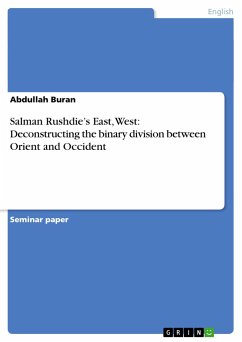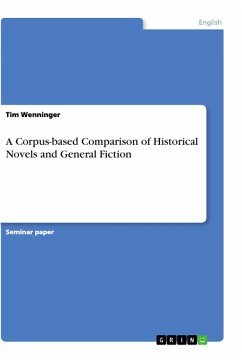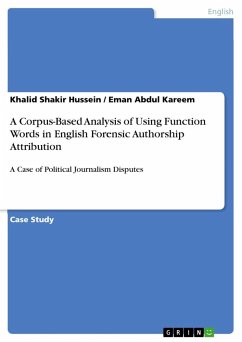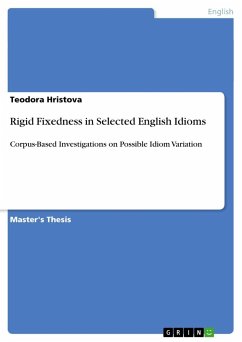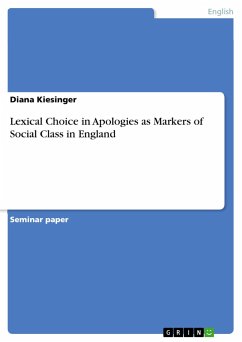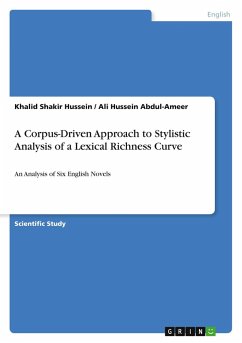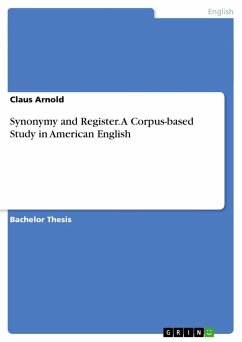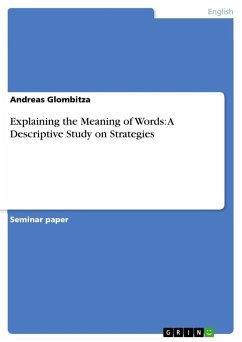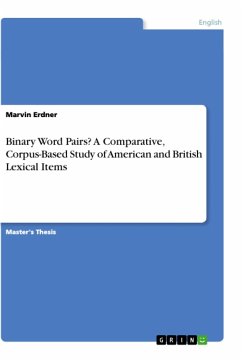
Binary Word Pairs? A Comparative, Corpus-Based Study of American and British Lexical Items
Versandkostenfrei!
Versandfertig in 1-2 Wochen
47,95 €
inkl. MwSt.

PAYBACK Punkte
0 °P sammeln!
Master's Thesis from the year 2020 in the subject English Language and Literature Studies - Linguistics, grade: 2,3, University of Augsburg, language: English, abstract: A contrastive and corpus-based study is provided in order to approach the question on binary word pairs in a highly quantitative way. According to the criteria formulated in the methodology, one hundred word pairs will represent the data set. Each pair consists of a British English and an American English pole expressed by one, two, or three lexical items, depending on the status of synonymic relations of the concept displayed...
Master's Thesis from the year 2020 in the subject English Language and Literature Studies - Linguistics, grade: 2,3, University of Augsburg, language: English, abstract: A contrastive and corpus-based study is provided in order to approach the question on binary word pairs in a highly quantitative way. According to the criteria formulated in the methodology, one hundred word pairs will represent the data set. Each pair consists of a British English and an American English pole expressed by one, two, or three lexical items, depending on the status of synonymic relations of the concept displayed. Two corpora (one is British-based, and one is American-oriented) serve as the primary source in order to receive four frequencies for each word paradigm. The following analysis, hence, is capable of determining tendencies of the comparing frequency rates. This approach will discover cases of clear-cut lexical distinction between the dialects, as well as cases with arbitrarily distributed alignments of word choice. In addition to these straightforward results, the paradigms will possibly show examples of miscellaneous asymmetrical partitions between the two varieties of interest. Instances that prove an equal preference for either dialectal variant manage to question the binarity of linguistic prescription and will be opposed in the discussion of this paper.



